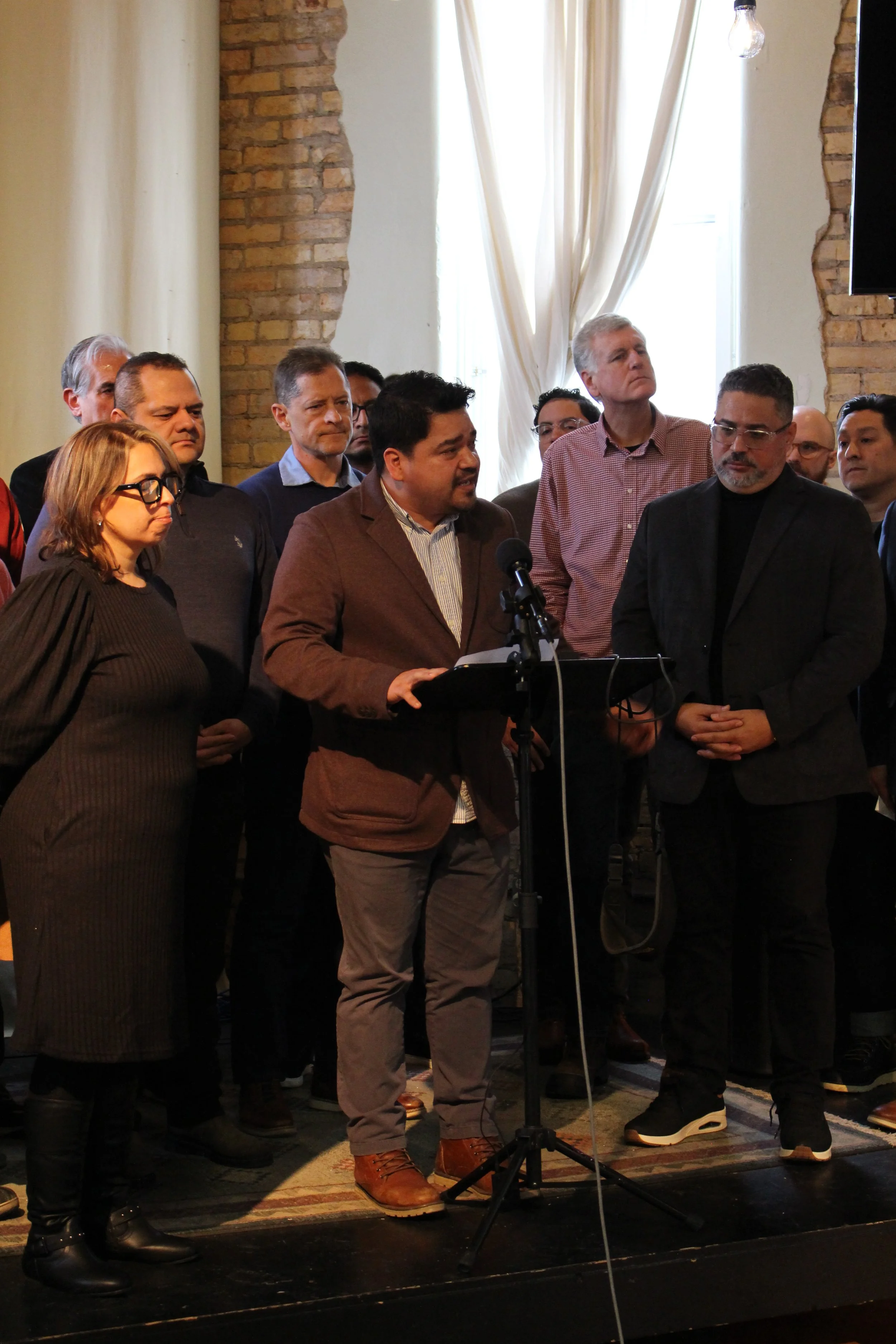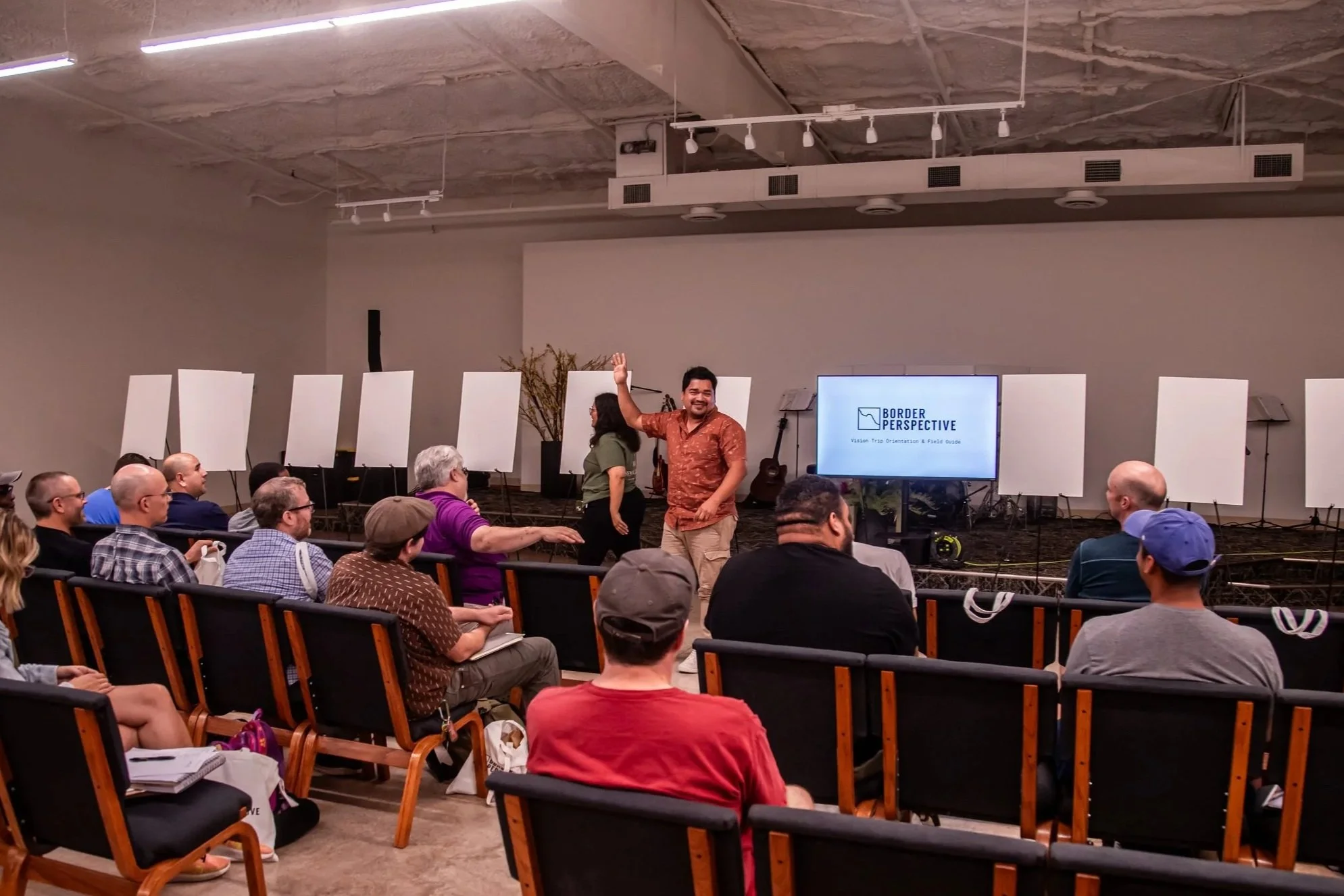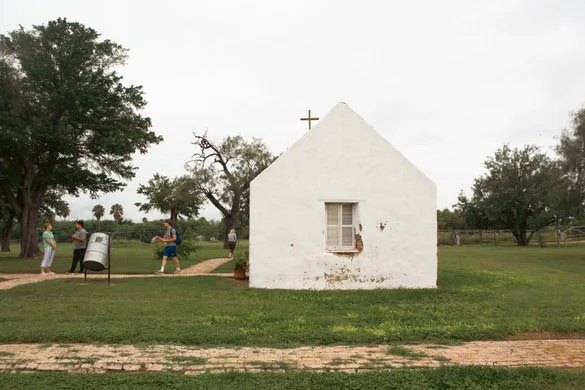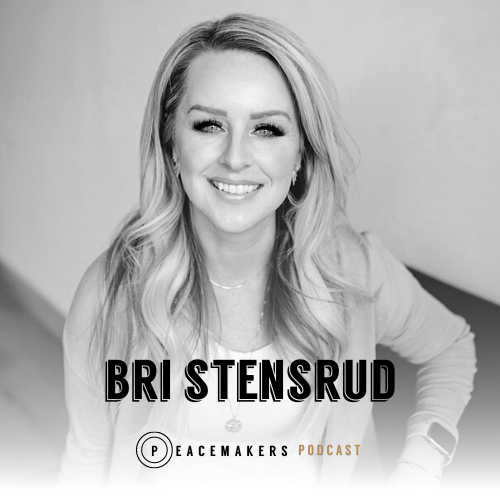Who Will You Serve?
A Personal Reflection by Caroline Quintero
Border Perspective’s Program & Content Development Coordinator
I was first challenged by the realities of human displacement and global migration in the Spring of 2018, serving in a refugee camp developed by the United Nations in the heart of Addis Ababa, Ethiopia; a place where internally displaced Ethiopians sought refuge from war and persecution within their own borders.
In the Fall of 2019 I found myself in a conference room in Atlanta, Georgia, sitting across the table from Hugo, Eunice and Yonathan Moya as they shared about the ministry of Iglesia Misionera Cristo Vive & Border Perspective, and invited us to “come and see” God at work along the United States and Mexico Border.
My husband and I moved to the Rio Grande Valley in December 2022 after three years of engagement with Border Perspective. The theme of migration continued to resound in our lives in increasing measure. We had taken part in several Service Learning trips, and served as interns during the Summer of 2022 as we discerned the Holy Spirit’s leading. I have served on staff full-time with Border Perspective since January 2023. It is fascinating to now be facilitating many of the conversations I was first invited to take part in nearly six years ago.
Wrestling With The Word
Service Learning participants arrive with a burning desire to have their questions answered and their misconceptions challenged. We begin our week sharing that they will likely leave the border with more questions than answers, but the questions they leave with will likely be different than the ones they arrived with.
What if transformation is not about finding all the answers, but cultivating a willingness to be changed as we wrestle our questions?
This phenomenon of leaving with more questions than answers aligns deeply with Jesus’ model for discipleship. He often responded to questions with another question, inviting his disciples both then and now to wrestle with the word and its tangible implications in our lives. Discipleship is defined by discomfort. This is how Jesus weeded out those who were not really serious about following Him.
This life of discipleship’s cost remains, even as our culture exalts the “values” of ease and instant gratification. Wisdom resides on the other side of wrestling. True satisfaction resides on the other side of surrender. More often than not, we don’t persevere long enough to see the fruit of these disciplines because we prefer comfort over the life Jesus offers us; the life of joy & freedom that comes with a cross.
Border Perspective’s Service Learning model is a humble embodiment of what Jesus intended for those of us who follow Him; a slow pace that invites us into community to see God at work in the least expected places for the purpose of living a life transformed in “Jerusalem, Judea, and to the ends of the earth.”
Service Learning participants wrestle for six days with God’s word, the world’s realities, and the call to respond as a body of believers. I am nearly six years into serving in this space, and I continue to wrestle alongside them.
Today, many people have chosen consciously and subconsciously to be discipled by the media and politicians rather than by Jesus and the scriptures. In this season I have been challenged to thematically wrestle with this idea of kingdoms, comparing the kingdoms of the earth and the Kingdom of God & considering how we are called to engage with each of them:
The Law of the Land vs. The Law of the Lord
In 1 Peter 2:13-14, Peter encourages believers to obey human authorities who were put in place to “punish those who do wrong, and to commend those who do right.” However, there are countless places in scripture where the governing authorities do the opposite, and the people of God responded by doing what was seemingly contrary to the law of the land. Take the midwives under Pharaoh's rule (Exodus 1:17), or Shadrach, Meshach, and Abednego under the reign of Nebuchadnezzar (Daniel 3:13-18) for example. In both circumstances, disobeying the “laws of the land” was punishable by death, but adhering to them was dishonoring to God.
“Do not be afraid of those who kill the body but cannot kill the soul. Rather, be afraid of the One who can destroy both soul and body.” — Matthew 10:28
In wrestling with these scriptures I am not implying that it is wise to blatantly disobey laws established by the government. I am, however, wrestling with the fact that there are cases, both biblically and presently, in which man made laws unfold in a way that is contrary to the Law of the Lord.
Discerning the fine line between these two forms of “law” requires us to have a deep knowledge of God’s word, and a disposition to allow the Holy Spirit to cultivate wisdom and understanding in our hearts. There are studies that show only 11% of American Christians read their Bible daily.
How can we discern God’s word if we don’t even know what it says?
Faith & Civic Engagement
Many participants come on Service Learning Trips wanting to learn about what they can do to change the US Immigration System. I would be lying if I said I don’t often wrestle with the same question. We live in a county where we CAN participate in government, and so we should. This is not the reality of every nation around the world. Advocacy can be holy, but when our political identity eclipses our identity in Christ, our witness is compromised. It is important that we consider the following carefully:
Idolizing the government:
If we properly align ourselves with our identity, we might define ourselves as followers of Jesus that happen to live in the United States. For many of us, we define ourselves first by our nationality; dedicating the majority of our time, energy, and focus to our politics and activism rather than being transformed by Jesus. Eternal justice, compassion and dignity are the fruits of true transformation as God calls us to act justly, to love mercy, and to walk humbly with our God. Often in the faith space, we are quick to point out shortcomings in others.
What might happen if we dedicated the same energy to examining our own shortcomings, and becoming all that God longs for us to be. Then our advocacy becomes integral, our shouts for justice an eternal cry.
“He has shown you, O mortal, what is good. And what does the Lord require of you? To act justly and to love mercy and to walk humbly with your God.” — Micah 6:8Excusing ourselves from taking action:
Historically, any time there has been a gap in the systems of the world, the Church has stepped in. Schools, Hospitals, and social services can all be traced back to believers who, in Jesus’ spirit of compassion, noticed a chasm between what was and what should have been. Now, we look to the government to forge a solution, and fall into either despair or indifference when they do not provide one.
God has been challenging me with this question: Even if the government does not, will you?
Will the Church be the Church? Will the Church awaken and step up to feed the hungry, to give the thirsty something to drink, to clothe the naked, to visit the sick & imprisoned and to welcome the stranger (Matthew 25:35-36) even if the government does not?
What if our anger or apathy turned into action?
Who Will You Serve?
Many of these questions I find myself wrestling with have led me to incomplete resolutions. I am reminded that we are called to work out our salvation (Philippians 2:12) and to be transformed over the course of a lifetime (1 Thessalonians 5:23) as we walk with Jesus and become like Him (2 Corinthians 3:18). This reflection is the beginning of a process that I am sure Jesus in His kindness will continue to walk me through for many days to come.
I do believe the most important question we have to answer in all of these things is “who will I serve?”
Recently I watched “The House of David” on Amazon Prime. This series tells the story of the fall of King Saul and the rise of King David in the Old Testament. After watching the series, I revisited the story in scripture and began considering the people of Israel during the period of the judges. They saw the kings of the nations surrounding them, and cried out to the judges that they wanted a king of their own.
But they already had a King. And so do we.
For those of us who follow Jesus, the same question that Joshua posed to the people of Israel during a moment of rededication to the Lord remains. God’s kingdom turns the world’s kingdoms on their head. We were never meant to fit neatly within the world’s systems, but to live set apart from them; in them, but not of them (John 17:14-15).
“Now fear the Lord and serve him with all faithfulness. Throw away the gods your ancestors worshiped beyond the Euphrates River and in Egypt, and serve the Lord. But if serving the Lord seems undesirable to you, then choose for yourselves this day whom you will serve, whether the gods your ancestors served beyond the Euphrates, or the gods of the Amorites, in whose land you are living. But as for me and my household, we will serve the Lord.” — Joshua 24:14-15
Even as you wrestle. Even in the uncertainty. Amid the national rhetoric and voices that are louder than they are true.
Choose for yourself. Who will you serve?

































